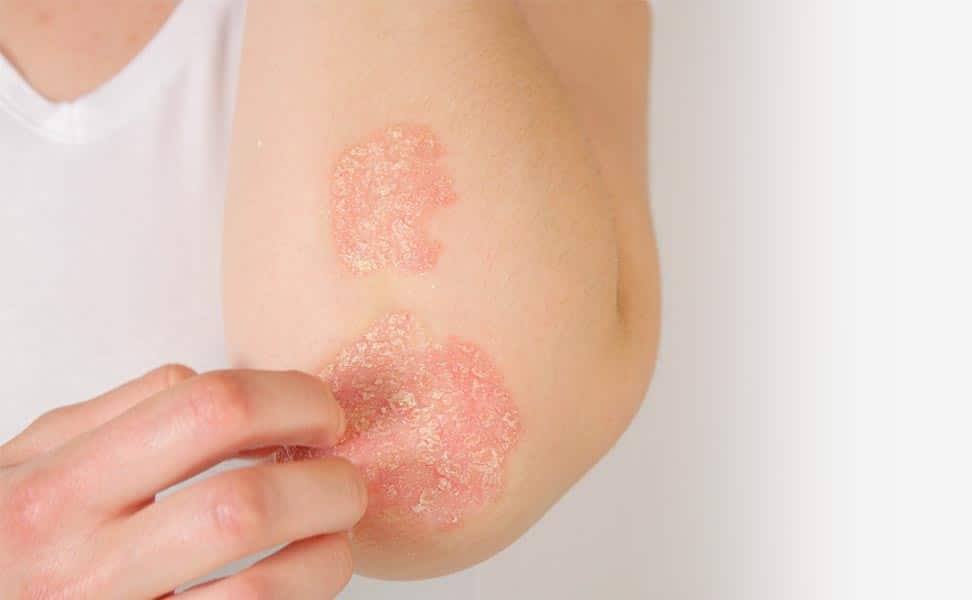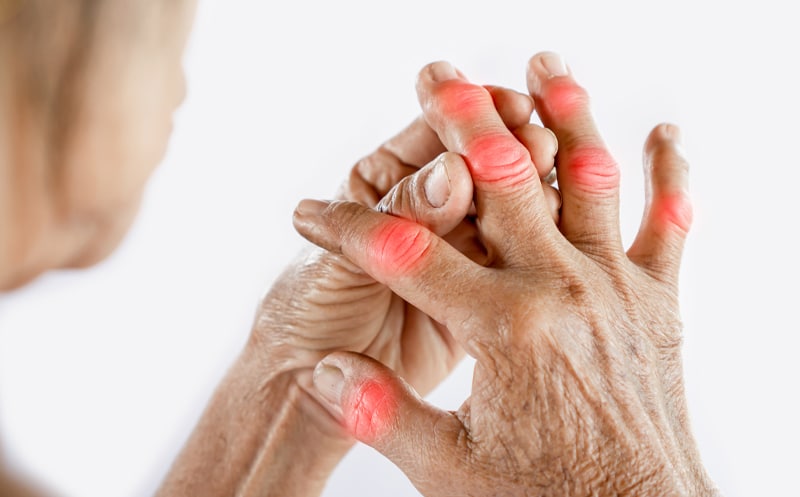Natural Treatment of Autoimmune Disease
A Holistic Approach to Autoimmune Disorders
Autoimmune Conditions We Treat
Balanced Immune System
The National Institute of Environmental Health Sciences states that over 80 autoimmune diseases exist. More than 24 million people in the U.S. suffer from an autoimmune disease.
- A healthy immune system is essential for normal growth and development and maximizes longevity. It protects your body against germs. When it senses foreign danger, it becomes activated and attacks unknown germs.
- An underactive immune system may not adequately defend against infections, leading to a weakened body or life-threatening consequences.
- If the body activates the immune response without a real threat or does not turn it off once the danger passes, this can result in autoimmunity and exaggerated allergic reactions. With an autoimmune disease, the immune system overreacts and attacks healthy cells in the body, according to the National Institute of Environmental Health Sciences. There is a loss of the ability to differentiate “self” from “non-self” clearly.
- Autoimmune diseases can affect every part of the body. They can cause loss of function, an increased risk of hospitalizations, disability, impaired quality of life, and decreased productivity.
There’s good news about this widespread and serious issue. Natural remedies for autoimmune diseases and a holistic approach to treatment can lead to positive and lasting change.

Symptoms of Autoimmune Disease
Autoimmune diseases can affect every part of the body. Symptoms include:
- Fatigue
- Low-grade fever
- Muscle aches
- Loss of function
- Increased risk of hospitalizations, disability, impaired quality of life, and decreased productivity
- Inflammation causing swelling, pain, redness, and heat
Inflammation is especially troublesome to autoimmune sufferers. Systemic inflammation can increase the likelihood of autoimmune diseases and autoimmune disease flare-ups. Answering the question of how to cure autoimmune disease naturally often includes focusing on reducing inflammation.

Risk Factors for Autoimmune Disease
Researchers believe that certain environmental factors and genetics cause autoimmune diseases. Below are some risk factors associated with autoimmune diseases.
- Genetics: Certain genes can predispose individuals to autoimmune disorders, explaining why autoimmune diseases tend to run in families. However, this does not mean every family member will have an autoimmune disease.
- Weight: Being obese or overweight increases one’s risk of autoimmune diseases. Increased weight places stress on the joints, leading to inflammation and joint dysfunction, which are symptoms of rheumatoid arthritis. In addition, fat tissues create substances that can increase inflammation, leading to a hyperactive immune system.
- Tobacco Products: Autoimmune disorders, such as lupus, Graves’ hyperthyroidism, rheumatoid arthritis, and multiple sclerosis, have been linked to cigarette smoking. Quitting is possible. There are many excellent smoking cessation programs available to help you break the habit and reduce your risk of autoimmune disease.
- Medications: Certain medications can trigger autoimmune diseases. For example, some blood pressure medications and antibiotics can increase the risk of developing lupus, and cholesterol-lowering medications can trigger statin-induced myopathy. You should speak with your doctor if you take any of these medications.

Holistic Approach to Autoimmune Disease Treatment
Healing autoimmune disorders requires an effective and adaptable framework that can consider the diverse issues patients face.
While there’s no single natural cure for autoimmune disease, combining conventional and alternative therapies can lead to especially effective results.
Discovery: The First Step to Autoimmune Natural Treatment
Our functional medicine clinicians perform a comprehensive exam that includes a family and social history and an understanding of your symptoms and potential triggers for autoimmune flare-ups.
Analysis: Identifying Individual and Unique Concerns
Doctors may order specialized tests to analyze your immune system and antibodies in depth. The test results will help them discover possible causes of inflammation and immune system imbalance instead of simply suppressing it.
Personalized Treatment Plan: Functional Medicine for Autoimmune Issues
There is no one-size-fits-all description of autoimmunity; it will look different for everyone. We provide a personalized treatment plan that combines the best conventional treatments with various alternative therapies for optimum results.
Health Coaching and Support: Working Toward Long-Term Results
Be your partner as you implement the treatment plans and recommended lifestyle changes such as:
- Strengthening the gut and microbiome
- Detoxifying the body of heavy metals
- Identifying food sensitivities and gluten intolerance
Ready to start healing your autoimmune disorders naturally so you can regain your health, reduce your flare-ups, and naturally reduce systemic inflammation?
Tips to Reduce Systemic Inflammation
Maintaining a healthy lifestyle helps keep the immune system healthy and balanced. When the immune system becomes unbalanced, it can begin to overreact. Extreme stress, an unhealthy diet, poor lifestyle choices, and a sedentary lifestyle can trigger the inflammatory response. Addressing these issues can help you take an active role in treating autoimmune diseases. You have the power to make positive changes that can reduce inflammation and many other symptoms and address the root causes of these issues.
Below are five tips to help reduce inflammation and flare-ups.
Consume Anti-inflammatory Foods
Anti-inflammatory foods reduce inflammation and are considered the healthiest foods on the planet. They are high in antioxidants, polyphenols, and omega-3 fatty acids.
Some of the top anti-inflammatory foods include green leafy vegetables (collard greens, kale, spinach, etc.), fatty fish (sardines, tuna, salmon, and mackerel), nuts (almonds, walnuts, etc.), olive oil, avocadoes, fruits (blueberries, cherries, strawberries, and citrus fruits).
Daily Exercise
Regular exercise helps to reduce inflammation in the body by detoxifying the body.
Working up a sweat helps release toxins. In addition, as your heart begins beating faster, it pushes more oxygen through the body, helping revitalize it.
Do at least 30 to 45 minutes of cardio five times a week for best results. Additionally, engage in 15 to 25 minutes of weight training four or five times weekly.
Reduce Inflammatory Foods
Just like some foods help fight inflammation, some foods can cause inflammation.
These unhealthy foods include refined carbohydrates (pastries, white bread, etc.), processed meats (hot dogs, lunch meats, and sausages), fried foods (French fries, onion rings, etc.), red meat, unhealthy fats (margarine, lard, and shortening), soda and other sugary beverages.
Stress Management
Chronic stress and anxiety can contribute to inflammation and increase the frequency of an autoimmune disease flare. Learning how to manage your stress levels may help reduce the number of flare-ups you experience.
People use meditation to clear their minds and relieve stress. This technique is effective for managing stress. Another stress relief technique is guided imagery. Other methods include yoga, progressive muscle relaxation, and guided imagery.
Weight Loss
Obesity also increases the risk of several autoimmune diseases, including psoriasis, rheumatoid arthritis, and multiple sclerosis. A sedentary lifestyle and a poor diet increase one’s waistline and inflammation. Losing or maintaining a healthy weight can reduce the risk of autoimmune disease.













